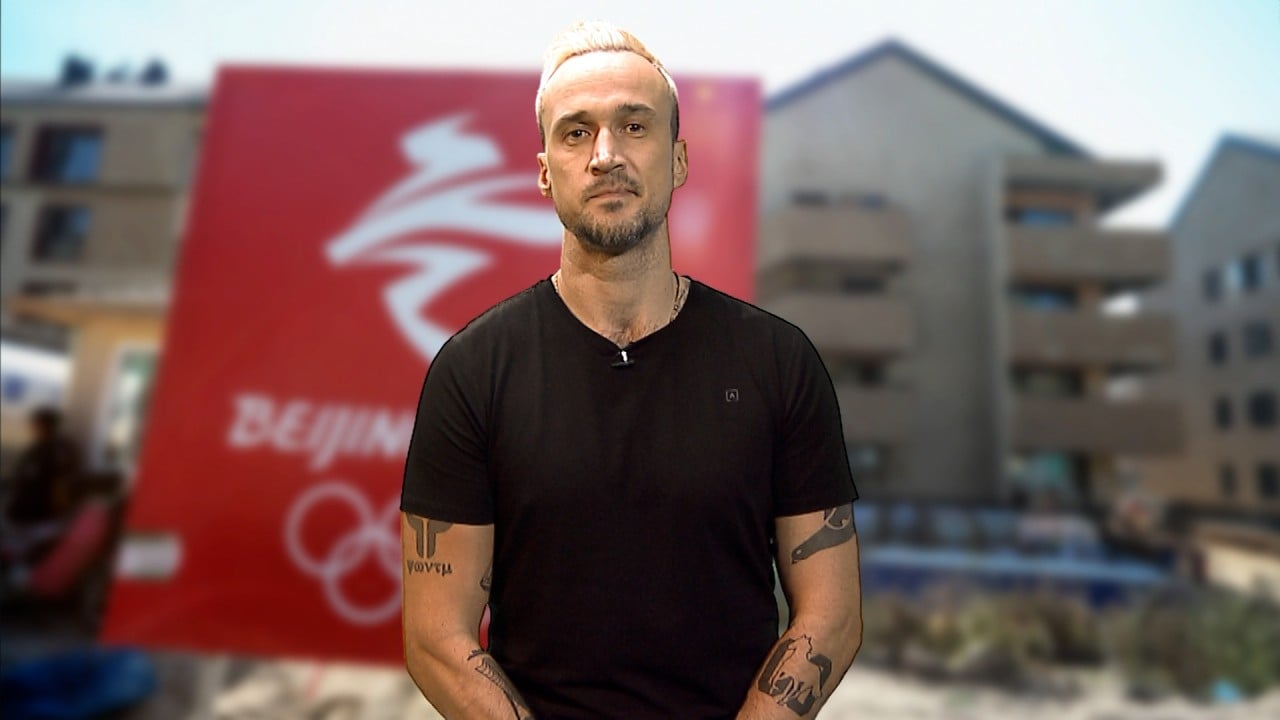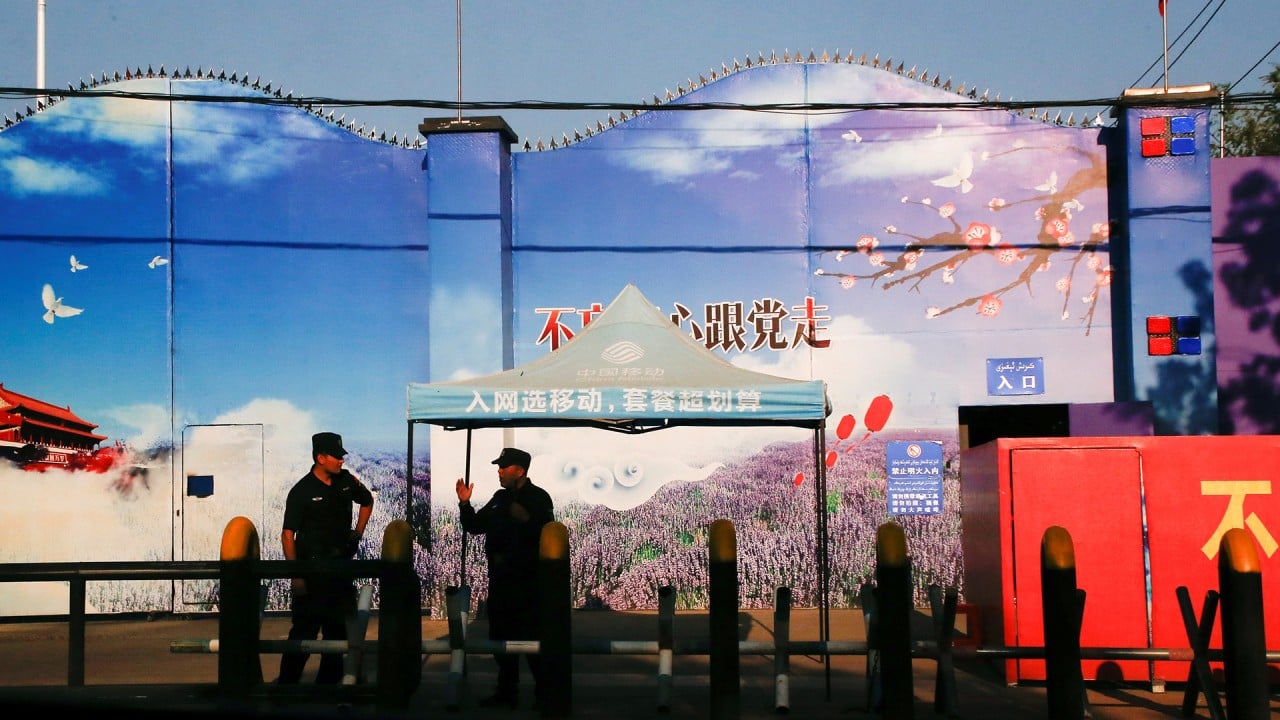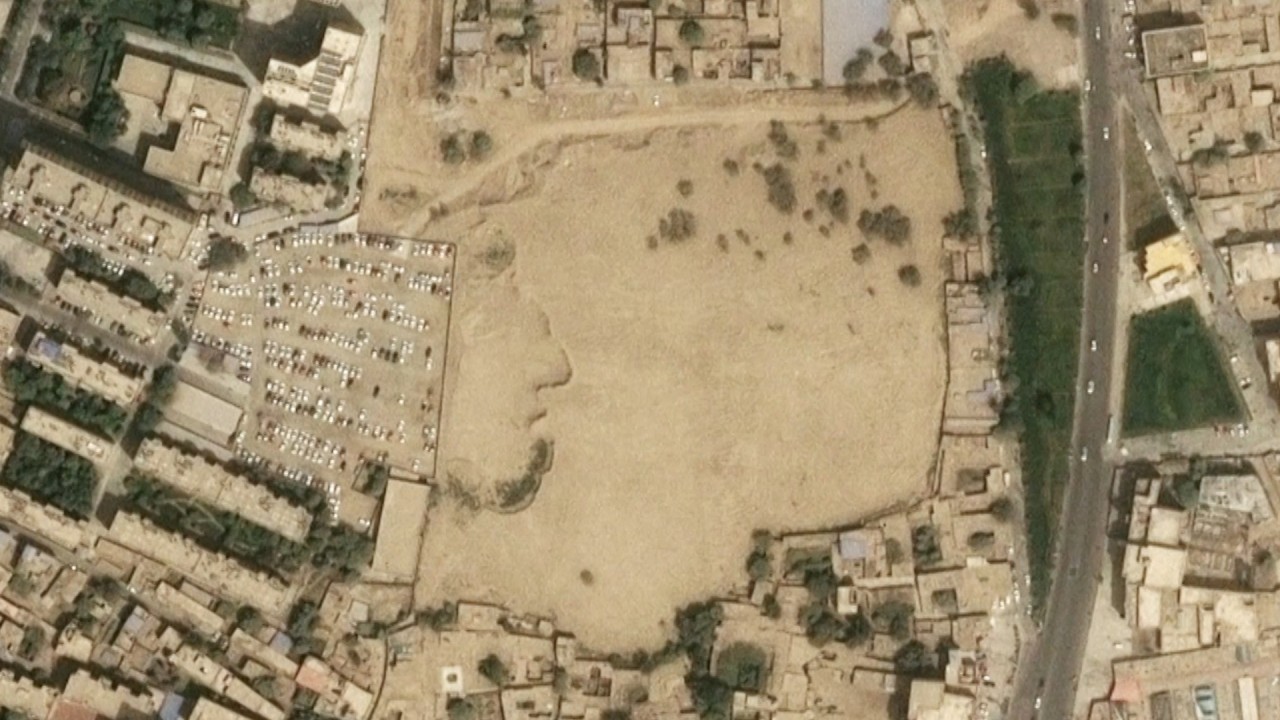
US not planning to boycott Beijing Winter Olympics despite Xinjiang genocide designation
- China is facing calls for the 2022 Games to be moved elsewhere over its human rights record
- The State Department said separately that the US is ‘deeply disturbed’ by reports of systematic rape and sexual abuse against women in Uygur internment camps
US President Joe Biden’s administration is signalling it currently has no plans to bar American athletes’ participation in the Beijing 2022 Winter Olympics, despite mounting calls for the Games to be moved over China’s human rights record.
Rights advocacy groups and politicians have made demands for the International Olympic Committee (IOC) to take the event out of China, casting a pall on Beijing’s efforts to highlight the Games as Thursday marks one year from opening day.
A group of US Republican senators on Tuesday introduced a resolution with a similar call to move the Games after the United States’ designation that the Chinese government was perpetrating genocide against Uygur Muslims in its Xinjiang region. That decision was made in the final days of Donald Trump’s presidency.
“We’re not currently talking about changing our posture or our plans as it relates to the Beijing Olympics,” White House spokeswoman Jen Psaki told a news briefing on Wednesday.

03:26
Will China face a massive boycott over the 2022 Beijing Winter Olympics?
“We consult, of course, closely with allies and partners at all levels to define our common concerns and establish a shared approach, but there is no discussion under way of a change in our plans from the United States at this point in time,” she said.
The White House and the State Department, asked repeatedly in recent days whether the Biden administration supported moving the Games, referred reporters to the US Olympic and Paralympic Committee (USOPC) for further comment.
“We oppose Games boycotts because they have been shown to negatively impact athletes while not effectively addressing global issues,” the USOPC said in a statement.
“We believe the more effective course of action is for the governments of the world and China to engage directly on human rights and political issues,” it said.
Britain’s ‘genocide’ clause clears hurdle, may affect China trade deals
Biden’s White House has not previously suggested publicly that it would oppose China as host, despite Beijing facing international condemnation for running labour and detention camps in Xinjiang.
Psaki’s comments on the issue came after a BBC report earlier on Wednesday saying that women in China’s camps for ethnic Uygurs and other Muslims in Xinjiang were subject to rape, sexual abuse and torture.
The spokesperson for the State Department said in response to a question on the report that the US is “deeply disturbed” by the allegations.
“These atrocities shock the conscience and must be met with serious consequences,” the spokesperson said, reiterating charges that China has committed “crimes against humanity and genocide” in Xinjiang.

02:27
US declares China has committed genocide in its treatment of Uygurs in Xinjiang
An independent UN panel said in 2018 that it had received credible reports that at least 1 million Uygurs and other Muslims had been held in the region, which borders Pakistan and Afghanistan. Beijing describes them as “vocational training centres” to stamp out extremism, and denies accusations of abuse.
US Secretary of State Antony Blinken said last week he backed the genocide designation made by the Trump administration while favouring cooperation with China on climate change and other issues.
Human Rights Watch on Wednesday slammed the IOC, saying its “failure to publicly confront Beijing’s serious human rights violations makes a mockery of its own commitments and claims that the Olympics are a ‘force for good’”.
The idea of an Olympic boycott is fraught political territory for the White House and for corporate sponsors.
“I think you want to raise the bar really high for Olympic boycotts,” said an Asian diplomat, speaking on condition of anonymity. “Public signalling sometimes becomes very hard for countries to step back from.”
US declares China has committed genocide in its treatment of Uygurs
Reuters sought comment from 15 global Olympic corporate sponsors, including American companies Coca-Cola, General Electric and Visa.
Only international insurance company Allianz responded, saying it had “zero-tolerance” for discrimination, but that it intended to remain a sponsor.
“We are present in over 70 countries worldwide, including those that have a different view of human rights than we do. We firmly believe that our presence in these countries contributes to the prosperity and security of the people there,” the company said in a statement.
Politicians and activists targeted China with boycott campaigns ahead of its hosting of the 2008 Summer Olympics, but then Republican President George W. Bush attended the opening ceremonies in Beijing.

02:31
Satellite images show China has bulldozed Uygur burial sites in Xinjiang
There has been speculation that the Biden administration’s support for the genocide designation could push it to seek allied backing for a boycott in 2022, something a US president has not done since Jimmy Carter blocked American athletes from attending the 1980 Summer Games in the former Soviet Union.
Ultimately, some US allies chose to participate, including Britain and France. Four years later, in a tit-for-tat response, the Soviet Union led a boycott of the 1984 Los Angeles Olympics.
Senior IOC member Dick Pound, a Canadian, said he doubted pressure would change the IOC’s support for staging the event in Beijing.
“My guess is there will be more voices urging it (a boycott), but I don’t think it is going to change the basic IOC view. It’s a very complicated and tension filled world and the more doors you can keep open the better,” Pound said.

